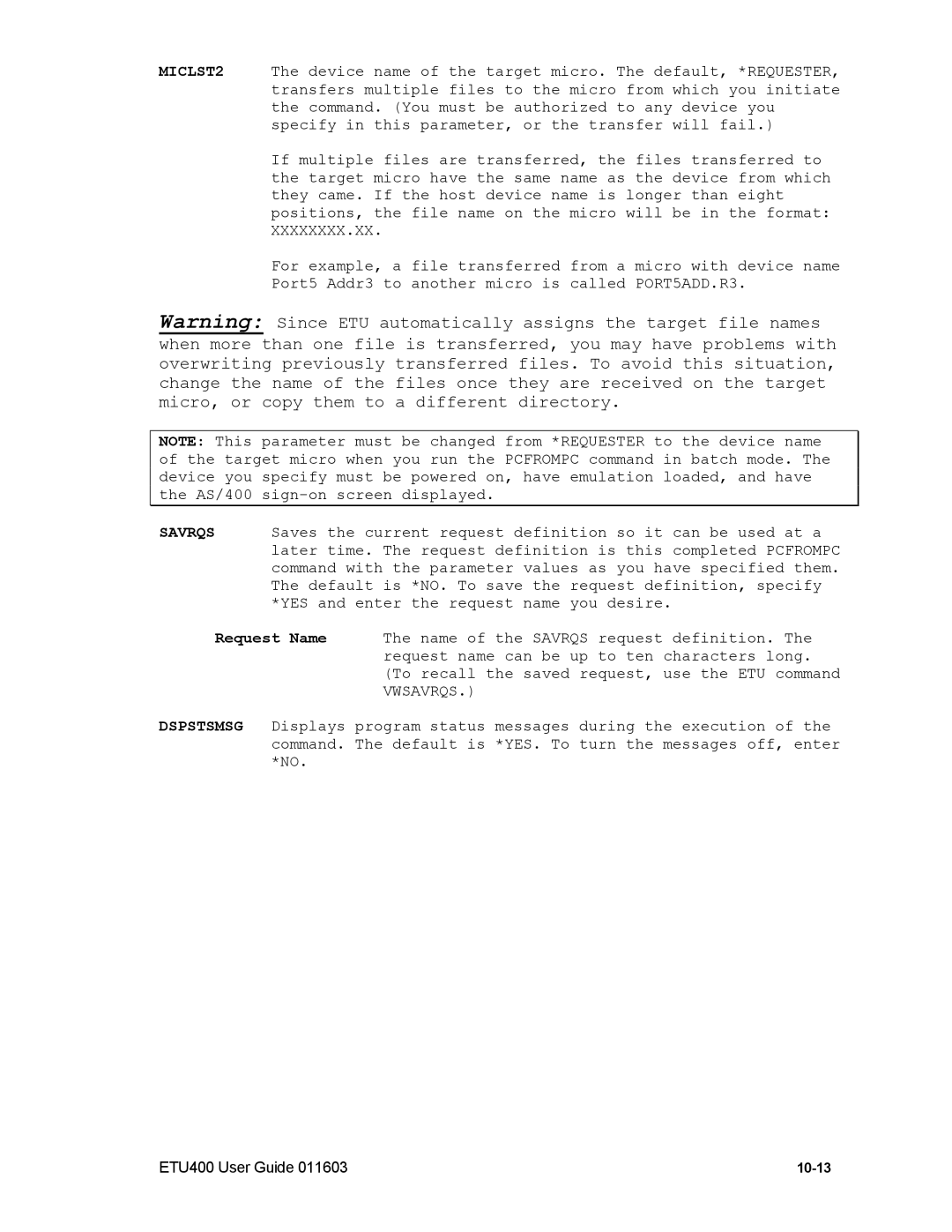
MICLST2 The device name of the target micro. The default, *REQUESTER, transfers multiple files to the micro from which you initiate the command. (You must be authorized to any device you specify in this parameter, or the transfer will fail.)
If multiple files are transferred, the files transferred to the target micro have the same name as the device from which they came. If the host device name is longer than eight positions, the file name on the micro will be in the format:
XXXXXXXX.XX.
For example, a file transferred from a micro with device name Port5 Addr3 to another micro is called PORT5ADD.R3.
Warning: Since ETU automatically assigns the target file names when more than one file is transferred, you may have problems with overwriting previously transferred files. To avoid this situation, change the name of the files once they are received on the target micro, or copy them to a different directory.
NOTE: This parameter must be changed from *REQUESTER to the device name of the target micro when you run the PCFROMPC command in batch mode. The device you specify must be powered on, have emulation loaded, and have the AS/400
SAVRQS Saves the current request definition so it can be used at a later time. The request definition is this completed PCFROMPC command with the parameter values as you have specified them. The default is *NO. To save the request definition, specify *YES and enter the request name you desire.
Request Name The name of the SAVRQS request definition. The request name can be up to ten characters long. (To recall the saved request, use the ETU command VWSAVRQS.)
DSPSTSMSG Displays program status messages during the execution of the command. The default is *YES. To turn the messages off, enter *NO.
ETU400 User Guide 011603 |
